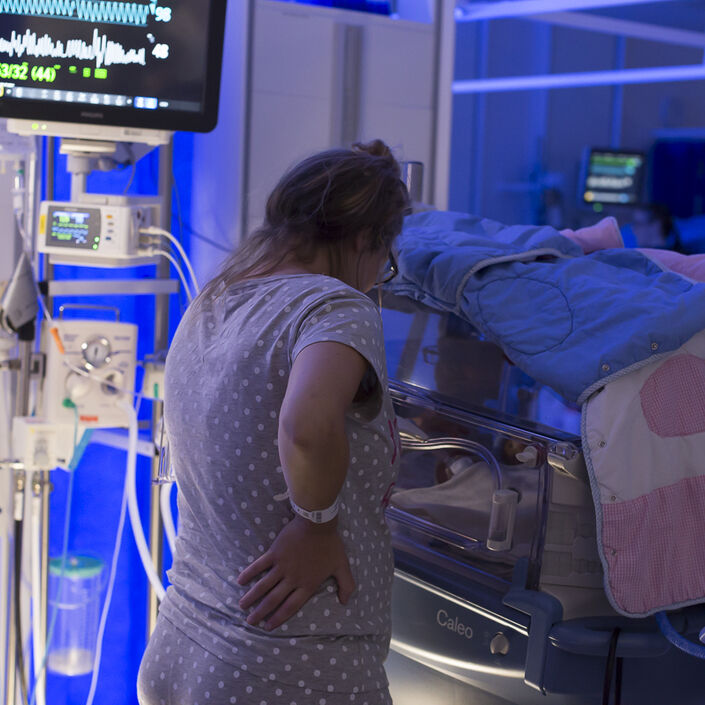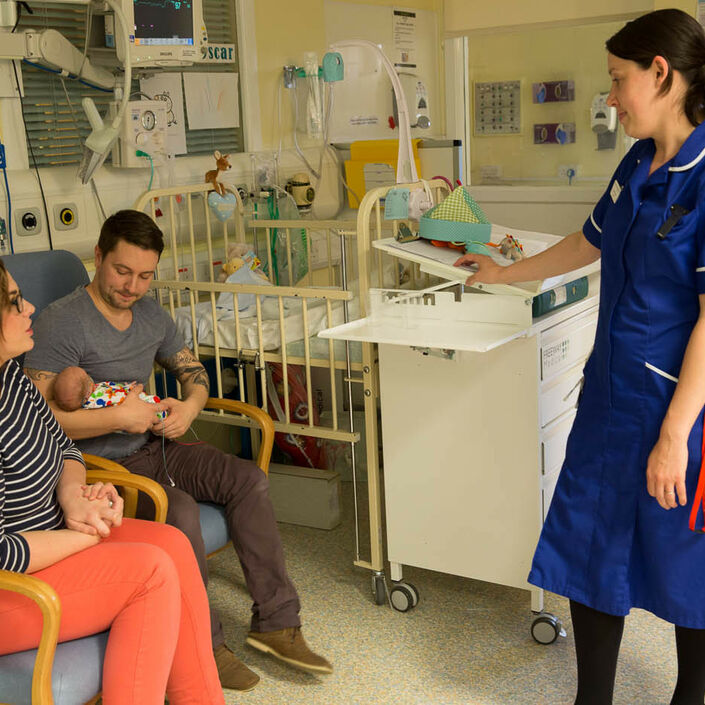It's OK to not feel OK
Having a baby is a big life event, which alone can trigger changes in people’s emotional well-being. When you have also faced trauma, unexpected challenges and upsetting situations, it is common for you to see some changes in your mental health and how you feel able to cope.
Often parents don’t feel they can talk to anyone when they are suffering with their mental well-being on the unit. This can be because they are worried that they’ll be seen as ‘not coping’, or that people might think they’re not able to care for their baby. It could also be because they feel guilty, or that they feel they should be worrying about their baby instead of themselves.
You are not alone
Knowing that you are not alone, and that you can talk to someone about what you’re experiencing, can be the first step to getting support. Being aware that what you’re feeling is common with parents who have been through what you have experienced might give you some comfort.
The first thing you can do to help yourself is to be kind to yourself. There is no expectation of you to handle things in any particular way.
How you feel may change day to day, and throughout your time in neonatal care and once you go home. And it is OK to not feel OK.
Opening up about how you feel is not a sign of weakness – in fact, it takes great strength to face what you are experiencing.
Talking to someone
You may feel that talking to someone makes your feelings feel ‘real’ and that might feel quite scary to begin with. However, talking to someone can often be a first step to finding what might help you.
It might also feel hard for you to notice or recognise changes in the way you are, so someone close to you might start a conversation about helping you instead.
However these conversations happen, it might be hard at first to talk about what you are facing. You might find it hard to put your feelings into words, or it might be overwhelming to open up. But sharing how you are feeling with someone else will mean that they have the information to be able to help you find the best support, whatever that might be for you.
You may find that over time it becomes easier to talk to someone and be open with how you feel. It is important to take things at your own pace.
Who should I talk to?
You might want to talk to someone very close to you who knows you well, like your partner, a parent or a close friend or family member. Many parents get a lot of support from opening up to someone they know and trust.
It might be that you are facing challenges in a very different way to your partner. That can make it harder for some people to talk to each other.
You could also feel that you don’t want to burden someone close to you, or that you don’t want to worry them.
Because of this, some people find it easier to talk to someone they don’t know so well, like a health professional on your unit or your GP. There might be a counsellor available on your unit for you to make an appointment with.
Hospitals also have chaplaincy services which offer support to parents of any or no religion. Some parents find it useful to talk to someone who is removed from their situation, who can listen to what they’re experiencing.
You can ask a nurse on your unit about how you can talk to the chaplaincy team. Someone from the chaplaincy team might also come around the unit to see if you would like to talk.
These are just are a few of the different people you could talk to. You might have other options available to you.
Different people will find support in different places. It might be that you find talking to a few different people will help you in different ways.
Take time to think about who might offer support in a way that’s right for you.
You might not feel ready to talk to someone in person yet. There is a lot of online support available which many parents find very helpful in letting them know that they are not alone, and that other people are facing what they are facing. You might want to try:
This kind of support is available day or night, when you need it.
Many dads tell us that they find it hard to reach out for support while their baby is on the neonatal unit. The Bliss Facebook group are places for all parents, and we encourage everyone, including dads, to access support when it’s needed.


